After the “desert” of customers caused by the pandemic, Macau’s delicatessen industry is now seeing a boom
Macau’s tourism industry is inseparable from the delicatessen industry, with many tourists regularly leaving the city with various local specialties in their suitcases on their way back.
Read also: Chinese overseas travel picks up during Chinese New Year
As the industry recovers, this market will also grow again. In 2020, when the retail sector performed poorly, sales of these products fell 76.7 percent from 2019 to MOP 320 million, rising to MOP 570 million in 2021, according to the Economic and Technological Development Bureau.
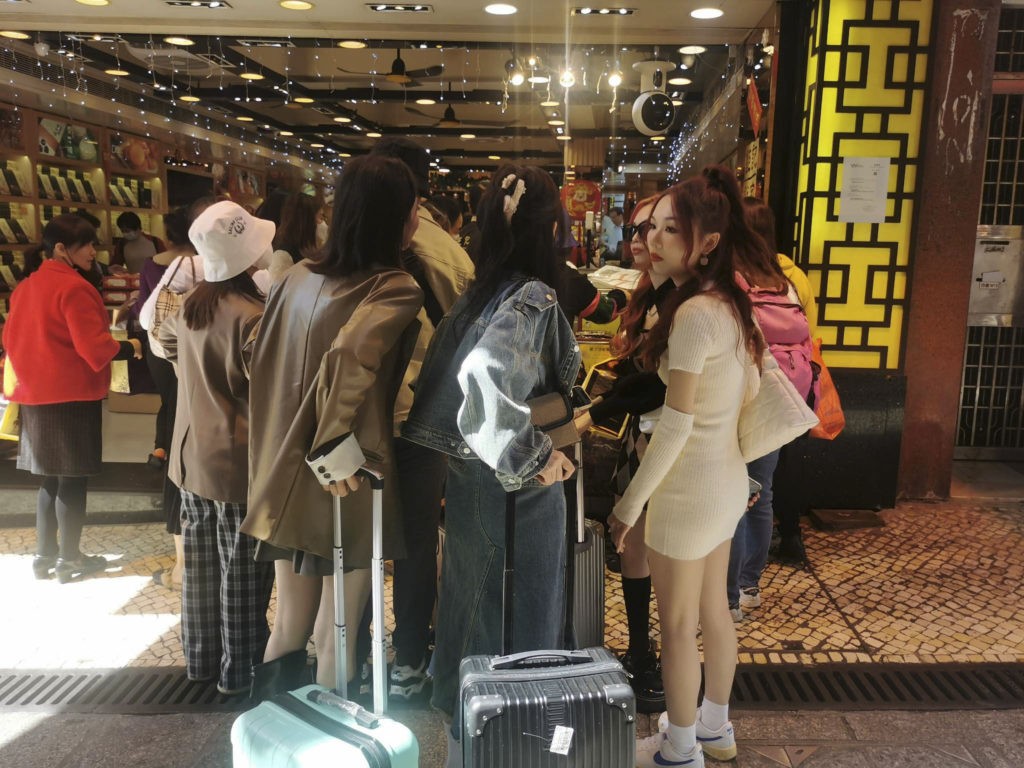
In Macau, this industry is mainly concentrated around the Ruins of St. Paul, the Inner Harbour and Cunha Street in Taipa, with St. Paul Street drawing the most attention. This “souvenir street”, as it is known, connects the Ruins of São Paulo with the Largo do Senado, and has always been a popular destination for tourists.
Read also: “Macau’s tourism industry is ready”
Since the 1980s, the area has been home to several businesses specializing in different local delicacies, including dried pork, almond cakes, and ginger candy, which have become popular souvenirs for visitors to Hong Kong.
It is not only a must-visit destination for tourists, but also a benchmark for the local tourism industry and Macau’s economy. Many of the beef jerky stores have regular suppliers, and some of the large chains of almond cookie stores have their own factories, but you can still find those who insist on making the cookies by hand.
A SLOW FALL
Flora, who has worked on Rua de S. Paulo for more than 20 years, has seen the neighborhood blossom and fall.
The street itself is only 200 meters long, but it is completely packed with ‘online influencers’, tourists with suitcases and strollers. “When the economy is booming, it can take 15 minutes to cross the street. When it’s crowded, one person can be pushed non-stop,” describes Flora.
Read also: Interest rates in Macau and Hong Kong hit the highest level in 17 years
However, the vendor emphasizes that 2022 was the worst of the last 20 years in the history of the street, mainly because the pandemic dragged on for so long that many merchants in the area did not survive.
“It was worse than the financial crises or during the atypical pneumonia in Hong Kong.”
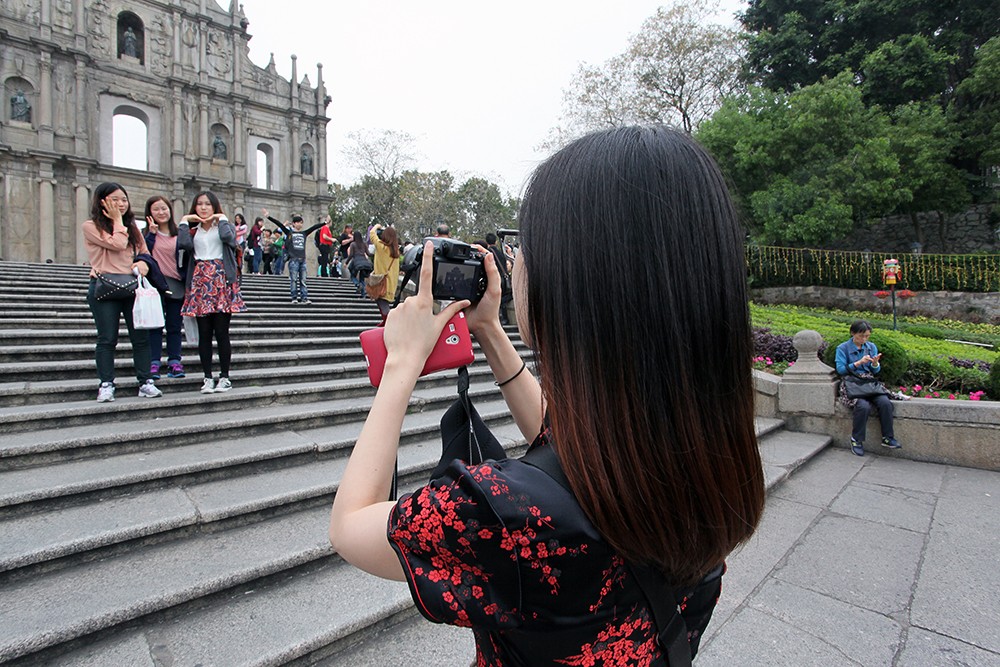
The outbreak of the pandemic in late 2019 hit the souvenir industry, whose main target audience is tourists, hard. Flora explains that stores initially started by offering discounts of 12 to 20 percent, or even ‘buy one, get one free’ promotions to attract customers. However, this strategy did not work.
Many employers and employees had to suspend activity indefinitely and wait for the situation to improve. Several stores simply closed, turning a once extremely busy street into an eerily quiet one.
Read also: Tourism | DST expects to attract 10,000 visitors from Hong Kong a day
According to the saleswoman, stores normally rented at MOP400,000 per month could not find a tenant even for a monthly fee of MOP70,000. “During these three years of pandemic, many of the vendors could not overcome the difficulties and chose to close doors and leave.”
VARIED PRESSURES
Those who chose to stay faced not only an empty street, but the pressure of paying wages and rents. Cheng, the owner of a local delicatessen store on St. Paul Street, describes to PLATAFORMA the difficult times he had during the pandemic.
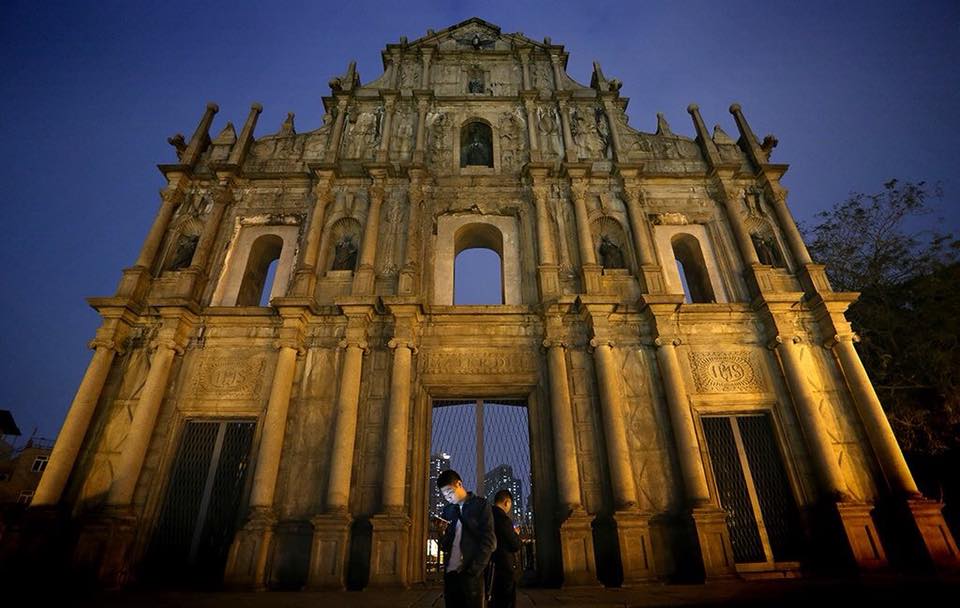
The owner, who agreed to speak only under a pseudonym, has been paying an interest-free loan of more than 3 million patacas to the Macau government for two years.
Read also: Excursions do not solve the lack of tourism in Macau
Although the loan is interest-free, the landlord still had to cope with the amount of rent and salaries, and still owes more than one million patacas. “I was undecided whether to close or not. Although the landlord reduced the rent to between 10 and 20 percent of the original, I lost money for three years. Not all landlords are so generous,” he points out.
According to the shopkeeper, the rent reduction may be negotiable, but he mentions the case of another shopkeeper, responsible for a store belonging to a commercial group that refused to reduce one cent of the rent.
“The owner of the group said ‘you have government subsidies, why should your rent be reduced?”.
Read also: Macau tourism agency tries to attract more mainland visitors
On the other hand, and despite the contraction of the market, stores like Alua and Comidas Portuguesa Kam In, specializing in Macanese cakes, saw the crisis as an opportunity and took advantage of this period of low rents to move to Rua de São Paulo in June 2022.

To PLATAFORMA, Alua’s owner admits that it was a dream to move to what is the busiest street in Macau.
THE TURNING POINT
Since January 8, people entering Macau from inland China, Hong Kong or Taiwan are not required to submit test results to Covid-19.
The relaxation of restrictions and a series of promotions and incentives launched by the tourism authorities have allowed the number of visitors to the historic part of the city to soar in just one week.
Read also: The tourists wanted in Macau
As of January 13, some 46,702 visitor arrivals were already recorded, an increase of 198.5 percent over the 2022 daily average and the highest number of visitors on a single day since the start of the pandemic.
This year’s Chinese New Year Golden Week, from January 21 to 27, was the first festive period in Macau without movement restrictions with Hong Kong and the Mainland since 2020.

According to the Public Security Police, a total of 451,000 visitor arrivals were recorded during these seven days, an increase of 296.9 percent over last year’s Chinese New Year. That number totals 37.5 percent of the number of visitors to Macau during the same period before the pandemic in 2019.
Read more on this subject: Chinese New Year will attract the largest number of tourists to Macau since the beginning of the pandemic
Ms. Cheung, in charge of the Fung Shing restaurant, describes January 8 as the turning point. In her opinion, on that day alone the movement on St. Paul’s Street recovered to about 70 to 80 percent of the movement recorded before the pandemic, being “a pleasant surprise and a long-awaited sight.”
“Business is even better than before the pandemic, both in people flow and in terms of sales. The previous year was not as busy […] but we had stock available. This year our stocks are more limited,” the trader points out.
LACK OF HANDS
With more tourists arriving, it is not only the available stock that begins to run low, but also the human resources.
Ms. Cheung points out that the support offered during the epidemic for small and medium-sized businesses was insufficient, and that the big problem now is the lack of manpower.
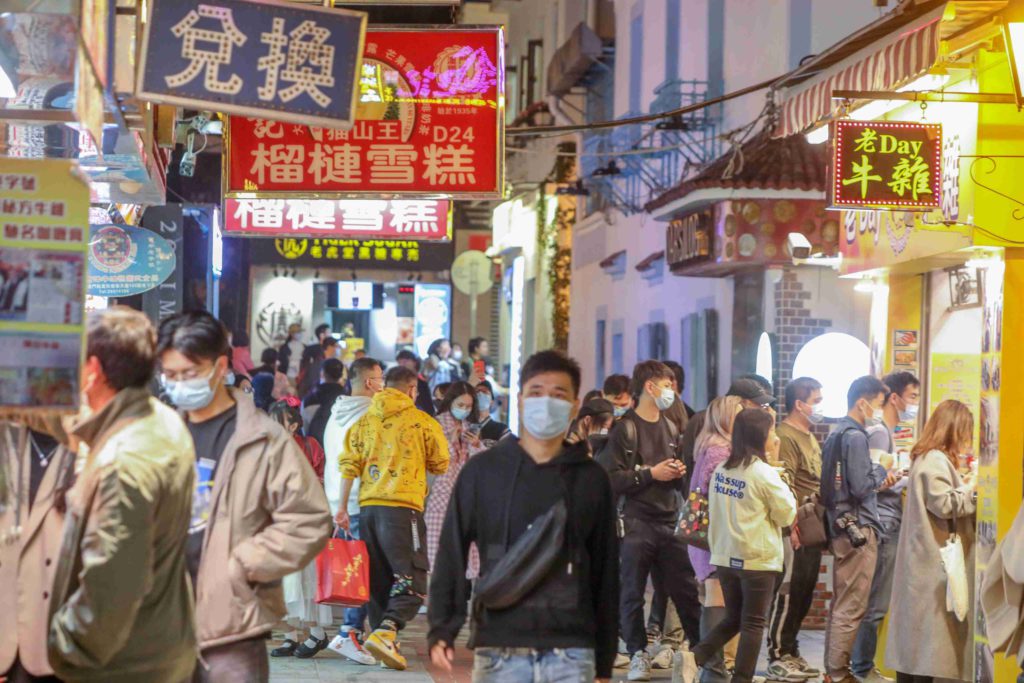
“We are facing a labor shortage problem. But our labor quota cannot be renewed after it has expired, which leaves us with a severe shortage of employees,” he laments.
Read also: Brake on Macau tours
For Cheng, the other merchant on St. Paul Street, the problem is not limited to applying for a new quota.
“Some of my previous quotas were returned by the Labour Affairs Bureau and I had to reapply for them through another company. There aren’t enough people for the service, but it’s nice to see that customers don’t mind waiting. There was one visitor from Hong Kong who even waited an hour!”.
FUTURE OUTLOOK
“I hope that after the pandemic the entry procedures will be relaxed and there will be more business,” Flora tells PLATFORMA.
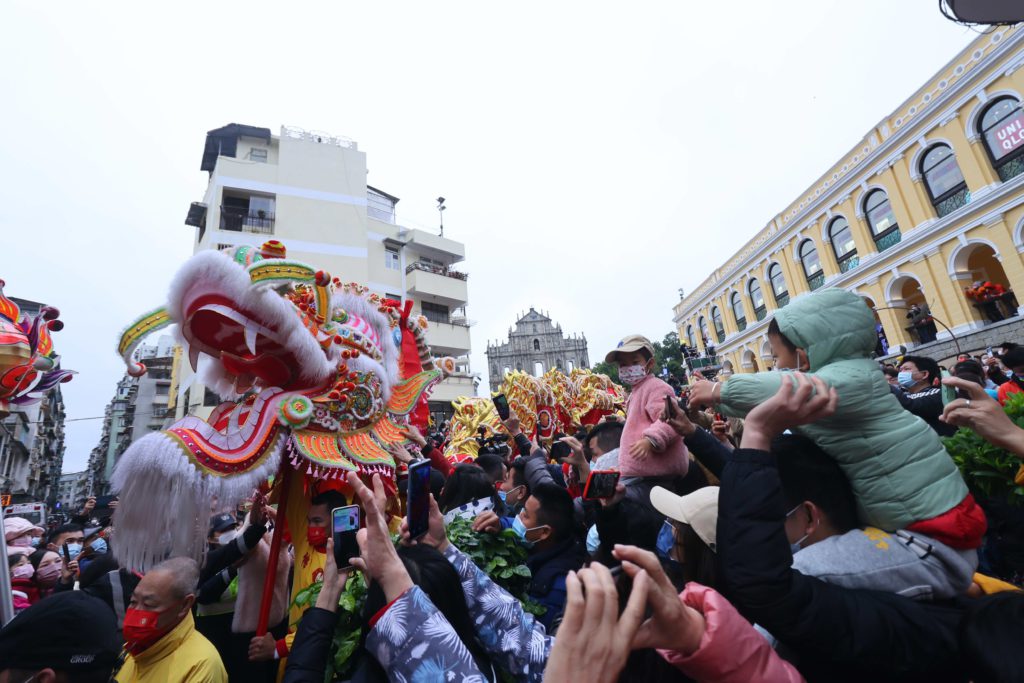
However, the trader believes that the current influx of visitors will be short-lived, as Japan and South Korea have yet to fully relax their restrictions on people coming from the Mainland and Hong Kong. Without these alternatives, visitors from the hinterland are opting for Macau, with Flora predicting that they will decrease in number and that the souvenir street is unlikely to return to its “golden days”.
Read also: Ho Iat Seng challenges Macau Trade Association to continue uniting and leading the sector
Among the crowd of people with shopping bags and souvenirs, we met Ms. Lau, who came to Macau from Hong Kong and bought three boxes of dried pork and two boxes of almond cookies.
The visitor recalls that although the Rua de São Paulo was always crowded, it was precisely this lively atmosphere that motivated her to return to Macau, particularly to the Rua das Ruínas de S.Paulo.



